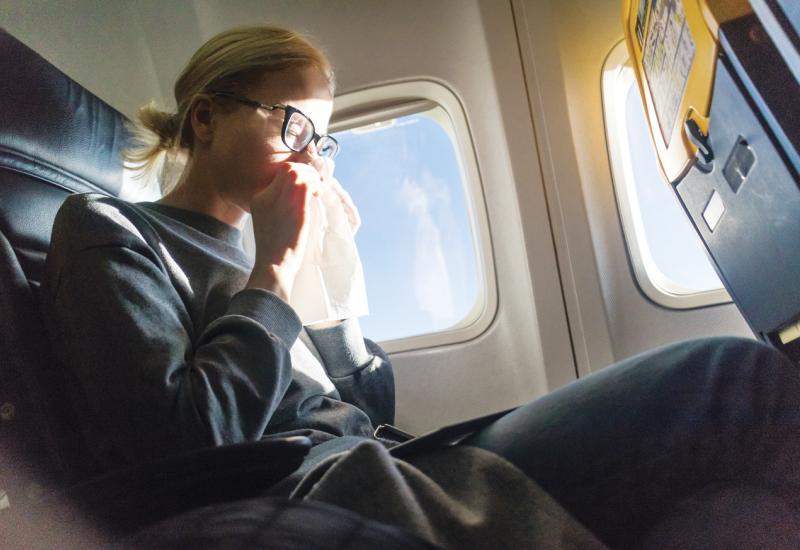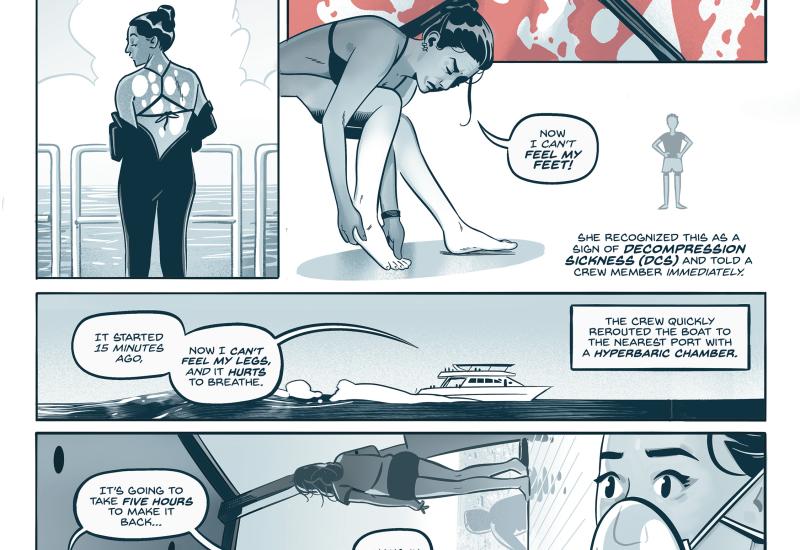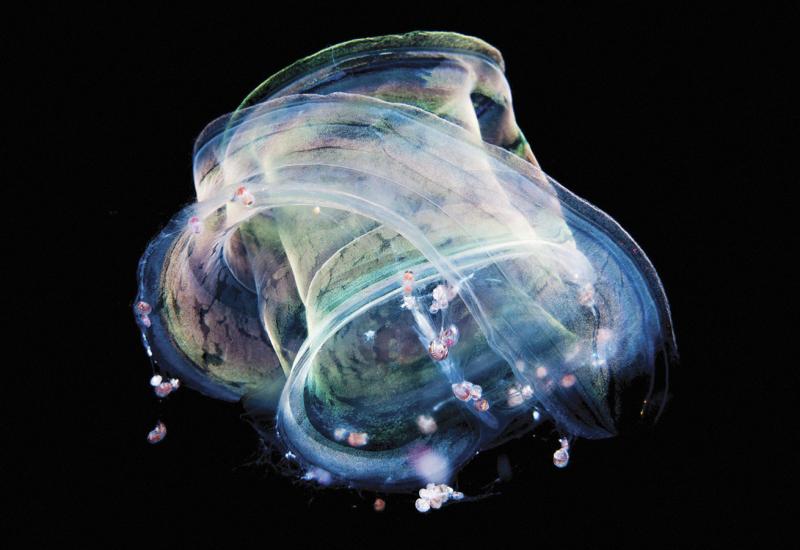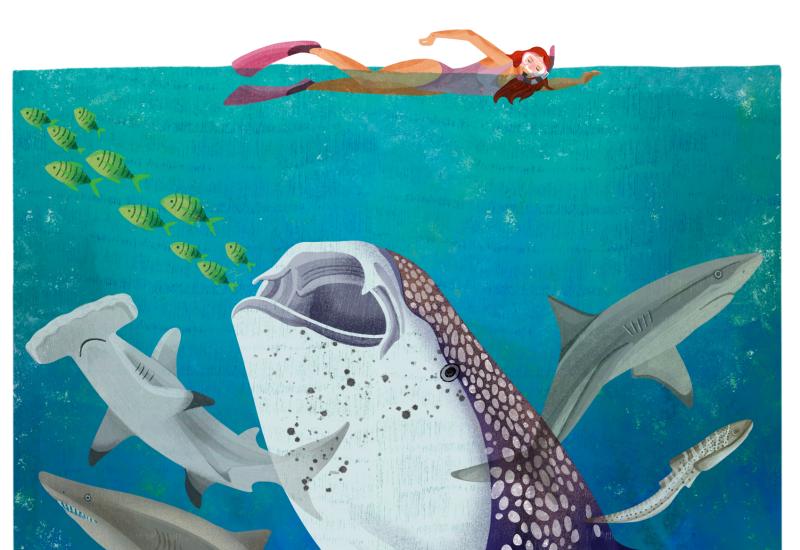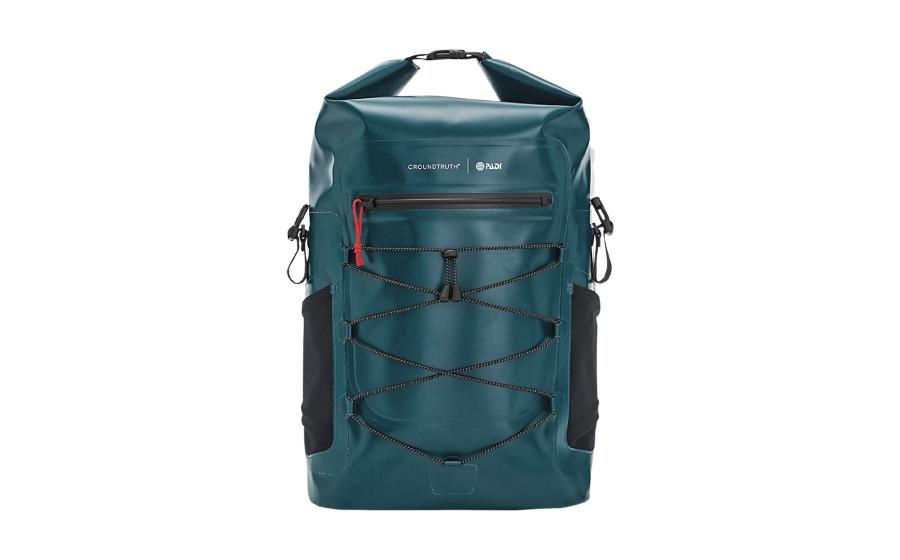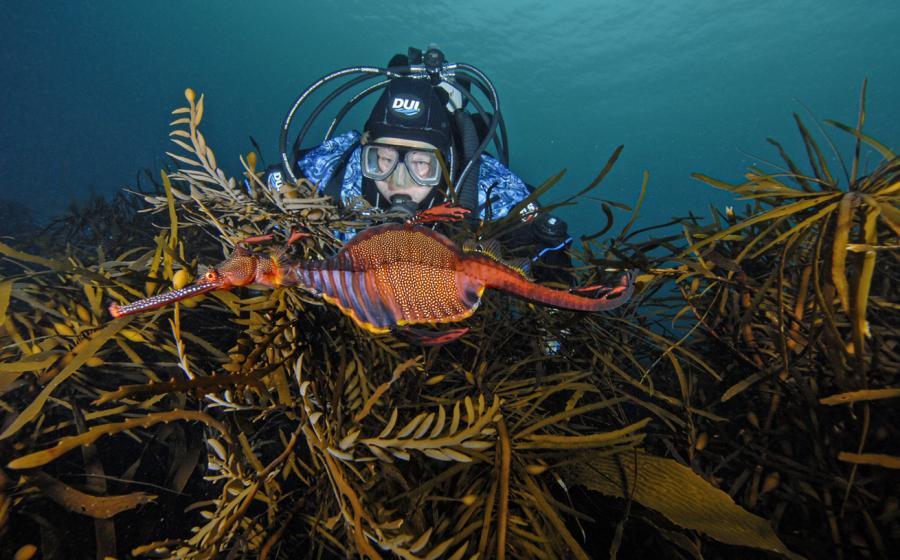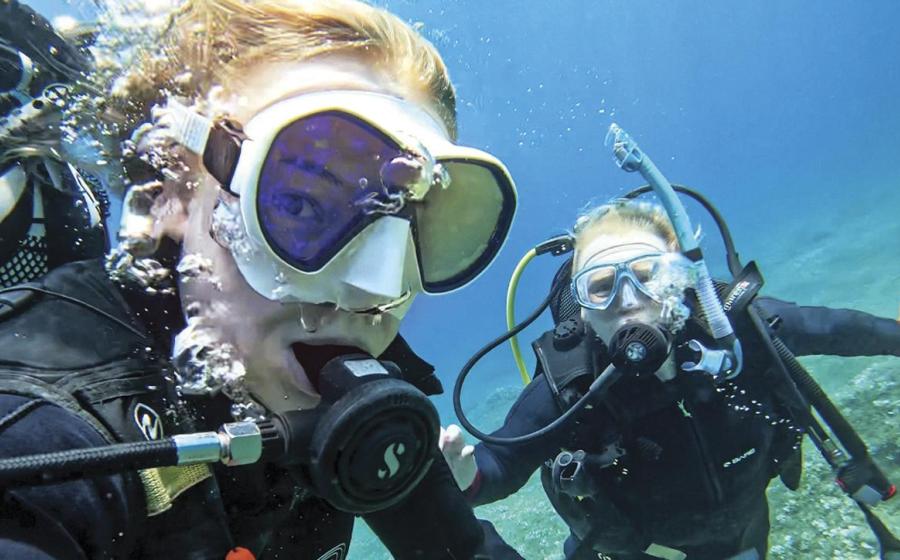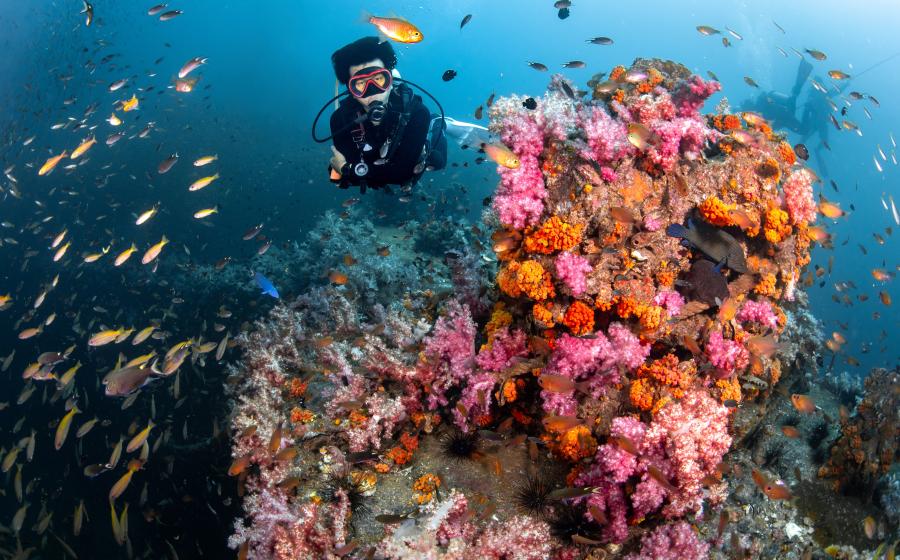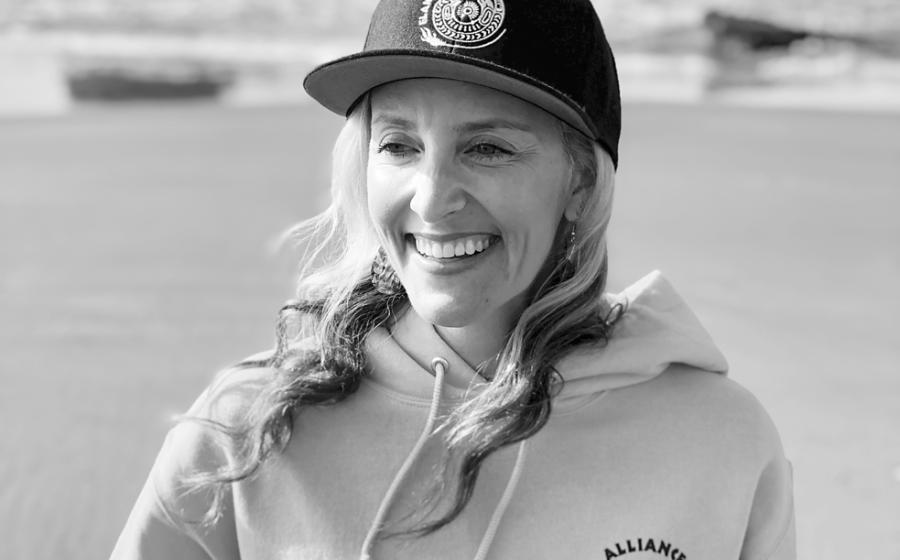Lessons For Life: Sinking Like A Stone
Willa and her friend Dave were excited about their special lobster-hunting location. No one else thought to dive there because the visibility was so poor, but they were going to catch their limit in two easy dives.
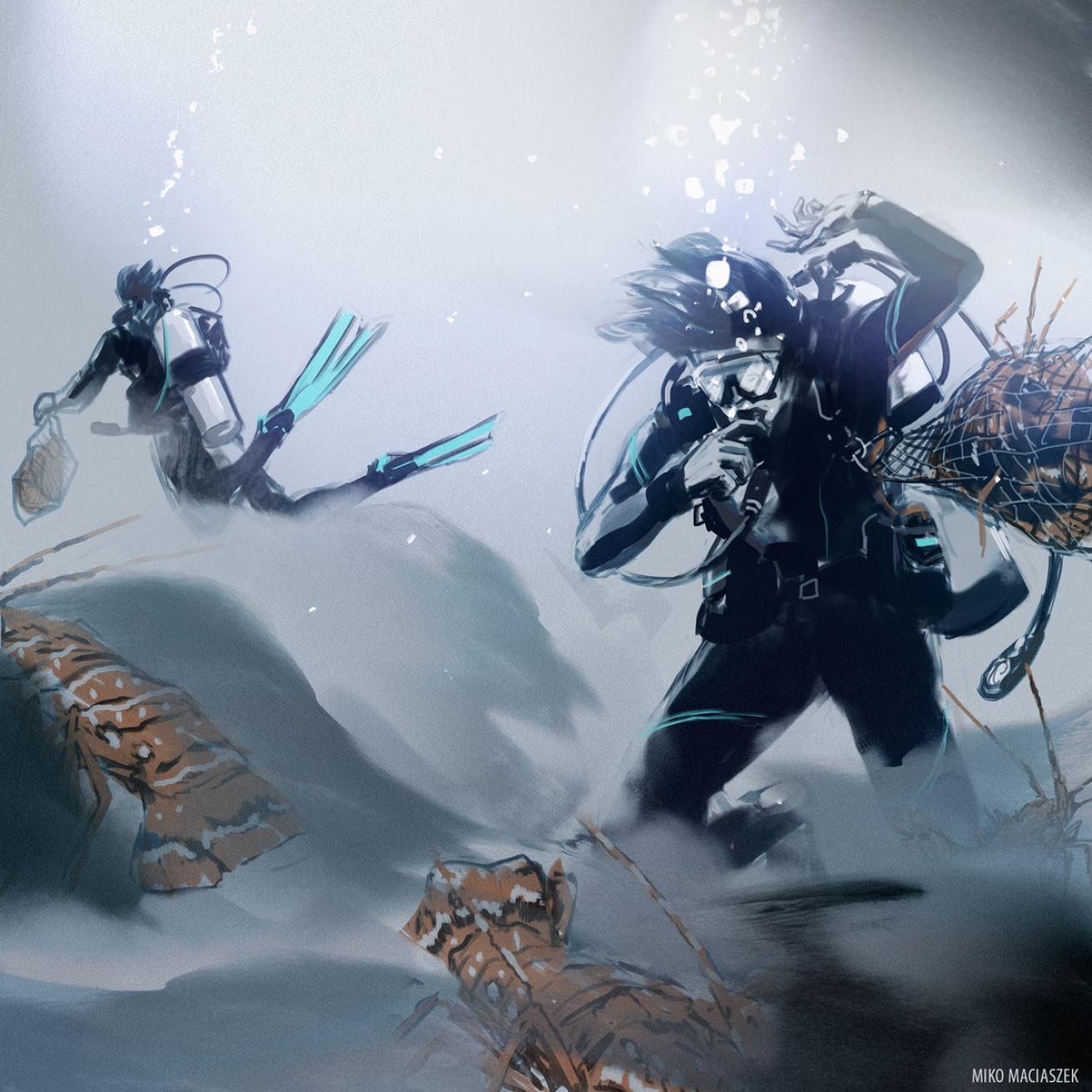
Miko MaciaszekShe dropped to the bottom like a rock.
Willa was tired and out of breath when they reached the descent marker, but she knew it would be better on the bottom. She let the air out of her BC and quickly dropped out of sight. When she hit the sand, she tried to take a breath. Nothing came.
THE DIVER
Willa had been diving on and off for more than 10 years. Some years she dived frequently, and others just a few times, but she always made it in the water for lobster season. She and her dive buddy Dave had long ago discovered a special spot where it was easy to find all the lobsters they wanted. Willa was 44 years old with no known medical conditions.
THE DIVE
Their first dive of the day had been uneventful. The buddies had filled their collection bags and made it to the surface within moments of each other. The visibility in their secret spot was normally low, but it was even worse today. Wind chop was stirring the surface in the shallow location. The poor viz made it difficult to stay in contact with each other, but they reasoned it didn’t matter that much. They each knew what the other was doing, and they were in less than 15 feet of water. They had dived together many times and weren’t worried about being separated underwater. Between dives, they talked about their favorite ways to cook the lobsters they caught and made plans to invite friends over for a big party.
To get to their lobster spot, the buddies made a shore entry and then swam out on the surface to a marker buoy where they began their dive. To make it easier to stay underwater at the shallow dive site, Willa was carrying 20 extra pounds of lead. She didn’t want to have to worry about floating up and down with each breath or when waves passed overhead.
Before the second dive, Willa and Dave assembled their gear and then pulled their wetsuits back on. The air was warm, so they immediately donned their scuba units and entered the water to swim to the buoy. The surf and wind had picked up during the surface interval, making the surface swim harder. Willa swam to the buoy on her back. Because of the extra lead she was carrying, her BC was completely full. The pressure from the jacket-style BC made it hard for her to take a deep breath as she swam.
Both Willa and Dave were winded on the surface, so neither wanted to wait to begin the dive. As soon as they reached the marker buoy, they both put their regulators in their mouths, gave a quick signal, and then began releasing air from their BCs.
THE ACCIDENT
Willa exhaled as she began her descent. Between that and the extra weight she was carrying, she dropped to the bottom like a rock. Poor visibility and underwater surge caused the divers to lose sight of each other immediately. Willa hit the sand in 13 feet of seawater.
Dave was troubled by the poor visibility, but he wasn’t worried. He continued his dive and surfaced 40 minutes later with a full collection bag. He realized Willa hadn’t finished her dive yet, but he still wasn’t concerned. Waiting on the beach, 15 minutes passed before Dave began to get nervous. The dive depth was shallow, so he wasn’t concerned about Willa running out of air, but neither of them normally took that long to catch lobsters. Another 15 minutes passed before Dave called for help and a search for Willa began.
The recovery divers found her body on the seafloor an hour and a half later, just 13 feet below the surface. The investigation concluded that Willa’s air had never been turned on. The medical examiner ruled her death a drowning, due to insufficient air.
ANALYSIS
Many longtime divers will tell you if you haven’t forgotten something on a dive, you aren’t diving enough. Getting distracted and forgetting to put in your weights or turn on your air before jumping into the water is inevitable. Willa’s is not the first accident that began when a diver started descending with her air turned off. Many experienced divers think the idea of a buddy check before a dive is something for newbies or someone less experienced. That overconfidence is where problems begin. If Willa and Dave had simply taken 30 seconds to do a quick gear check, Willa would have realized her air was off and everything would have been fine.
The next question is: Why didn’t she simply swim to the surface, turn on her air, and continue the dive? We don’t know exactly what happened in those moments after Willa began her descent, but it is reasonable to assume that panic played a major role in the accident. Willa was carrying too much weight. She had a hard surface swim to the dive site, and she was winded when she began her descent. When she hit the sand, without any air, she was unable to inflate her BC to get her buoyancy under control or to counteract the additional lead she was carrying. Out of air, overweighted and out of breath, panic likely set in almost immediately. It is possible Willa made it back to the surface, but being unable to inflate her BC, she would have struggled before sinking back below the water. A common mistake panicked divers make is forgetting to jettison their weights. Either on the bottom or struggling on the surface to stay afloat, a quick release of her weight belt or pulling out her integrated weight pockets would have made her instantly buoyant and had her floating on the surface. Of course, she could have orally inflated her BC on the surface, but that didn’t happen.
Panic is a frequent topic in this column. One definition for panic from Oxford Dictionaries is “sudden uncontrollable fear or anxiety, often causing wildly unthinking behavior.” When panic strikes, rational thought and the ability to think through a problem goes out the window. Panicked divers forget how to handle an emergency.
The only way to counteract panic situations is to practice emergency drills to the point that they become second nature. If you haven’t practiced releasing your weights or clearing your mask or any other emergency skill since you completed your open-water-diver course, it has been too long.
Dive accidents are rare, but they don’t happen only in deep water or in caves. And they don’t happen only to people who do things they aren’t supposed to do. Under certain circumstances, accidents can happen in shallow water on what should be an easy dive. All it takes is not paying attention to the details, forgetting to do a basic check, and beginning a dive without being ready.
LESSONS FOR LIFE
1 ) PRACTICE EMERGENCY DRILLS REGULARLY Remove and replace your weights in the water, stretch out a cramp, practice air-sharing skills, and flood and clear your mask. These are all skills that can save your life.
2 ) PERFORM A BUDDY CHECK It takes only a few seconds before you get in the water, but it can save you a lot of headache afterward.
3 ) DON’T DIVE OVERWEIGHTED Perform a buoyancy check when you get in the water. If you feel you need an extra pound or two to stay down, that’s fine, but if you have to fully inflate your BC to stay on the surface, you are carrying too much weight.
>> Eric Douglas co-authored the book Scuba Diving Safety, and has written a series of adventure novels, children’s books, and short stories — all with an ocean and scuba diving theme. Check out his website at booksbyeric.com, and follow him on Facebook at facebook.com/EricDouglasAuthor.

